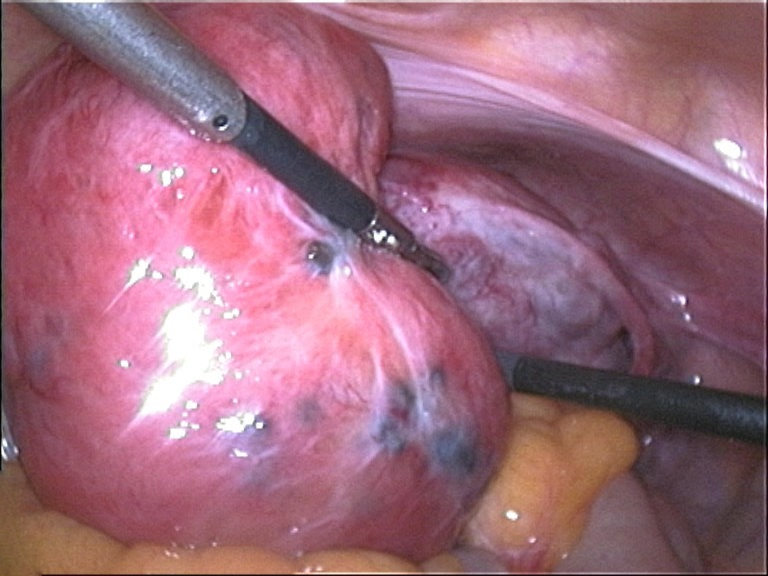Introduction
Adenomyosis is uterine disorder very much like endometriosis, where the inner uterine lining is displaced within the uterine muscle wall (uterine myometrium). Since these displaced tissues continue to shed, thicken, and bleed in each menstrual cycle, it is known to cause excruciating menses pains, and excessive bleeding. These cluster of tissue transform into black colored lesions we call Adenomyoma. Another distinct characteristic is the swelling and thickening of the uterus, causing it to be bulkier and heavier, commonly associated with increased pressure within the region and chronic pelvis pain.
If proper diagnosis and treatment is not received, Adenomyosis will continue to get more severe, causing severe complications to your menses cycle, fertility, and pregnancies.
Symptoms
- Pelvis pain and pressure
- Heavy menses bleeding, causing fatigue and dizziness
- Pain during intercourse
- Painful menses cramps
- Unexplained infertility
- Recurrent Miscarriage
- Swollen uterus
How does Adenomyosis cause recurrent miscarriage?
Adenomyosis cause benign lesions known as adenomyoma to grow within the uterine myoma, this is what causes the unbearable menses pains during your monthly cycle. During pregnancy, these lesions compete nutrients and blood flow with the developing embryo during embryogenesis. Due to the inadequate blood flow and nutrient going towards the embryo, it has high risk of causing an early miscarriage. It can cause recurrent miscarriage if adenomyosis is not treated effectively.
Diagnosis
Diagnosis is mainly done via transvaginal ultrasonography, and 4D-Color doppler ultrasound. MRI is also used in some cases. Gynecologic symptoms are also considered. The imaging results will show an enlarged, bulky-looking uterus, with the presence of adenomyoma within the myometrium. These adenomyomas must be differentiated from uterine fibroids.
Treatment
Common management for Adenomyosis is done by using 2 key methods. The first one is my administering hormone modulators that control and halt ovulation. This method reduces symptoms significantly, by eliminating the menstrual cycle, however it does not stop the further development of the adenomyosis that is still present within the uterus. The 2nd one is hysterectomy, where the uterus is partially or entirely removed. This management technique is widespread, and although it eliminates all symptoms, the patient no longer menstruates and cannot get pregnant.
Here at Antai Hospital, our doctors conduct a minimally invasive procedure using Hysteroscopy and Laparoscopy to remove each single adenomyoma, without conducting an unnecessary hysterectomy. Upon completion of surgery and recovery, patient can have healthy pregnancies and livebirths. If you have been experiencing repeated miscarriages or unexplained recurrent miscarriages, please get in touch with us today and arrange an online consultation with us.
Antai Hospital’s Commitment
Antai Hospital’s full refund policy for the miscarriage prevention treatments we provide should already be the best guarantee for a healthy pregnancy. Patients should rest assured, can and should go about their everyday life, focusing their diet on vegetables, beans, celery, and other fiber-rich foods. Besides that, an active lifestyle of yoga and swimming should also be incorporated to help relieve stress and increase blood circulation, which is beneficial for the fetus’s development and the mother’s health. With our assurance, a healthy lifestyle, and peace of mind, you can go through a healthy pregnancy with no complications.
Recurrent miscarriages are no doubt a heavy blow to the patient’s physical and mental health. All we can do is to help ease the burden and decrease your trauma, to slowly help you overcome the anxiety with the love and care that we provide at Antai Hospital.
Trust in Antai Hospital and trust in yourself, your pregnancy is our priority.
